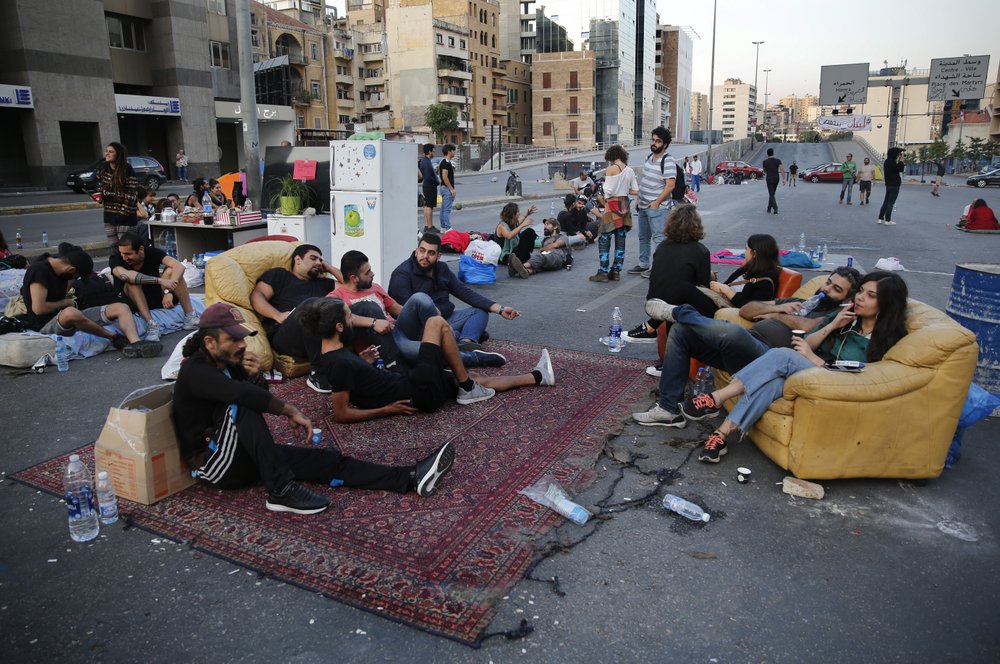Anyone who read Egypt’s state-run newspapers on Sunday morning would have come away with the unambiguous message that Egyptians responded to calls for a national strike over the weekend with their best asset: industriousness. “And the strike fails,” read the headline of Al-Ahram’s top story, which lauded Egyptians for their apparent refusal to participate in school and work stoppages on the one-year anniversary of Hosni Mubarak’s departure. Another state newspaper, Al-Akhbar, carried photos on its front page of unwearied construction workers laboring away, next to a full classroom of students working diligently in a public school.
The strike these papers referred to was an invention of the ruling establishment’s hollow imagination, rather than a reality. For the past two weeks, the Supreme Council of the Armed Forces (SCAF), with the helping hand of its faithful state media, has been frightening Egyptians with claims that a campaign of mass civil disobedience promoted by activists to hasten the handover of power from the military to civilians threatened Egypt’s stability and public order. Such scaremongering has proven to be a vintage tactic of the ruling generals who, like their former commander, confront dissent by evoking the looming specter of lawlessness. Over the past year, protests against the military council have been regularly portrayed as part of a menacing plot to sabotage the country and undermine the integrity of the state. Predictably then, the call by activists for peaceful civil disobedience was turned into an imminent threat of civil disorder.
In a matter of days, the army had announced plans to secure public institutions and strategic locations, like the airport, to protect them from possible attacks, as if the country was preparing to defend itself against a foreign invasion. Nearly every political and religious authority in Egypt – from the Grand mufti and the Coptic pope, to the prime minister, to the rising Islamist parties, and even some presidential hopefuls–decided to weigh in with one message: that the proposed campaign was harmful to Egypt’s interests and security. On 11 February, when the threats did not materialize (unsurprisingly, since nobody ever intended to create such mayhem) and the day passed with an unremarkable tranquility, Egypt’s rulers celebrated the hush and declared the civil disobedience campaign a failure.
The day was undoubtedly a failure when measured against the prospect of frenzied chaos conjured up by the authorities. Even if we dismiss their warnings, the discernible turnout on 11 February did not resemble anything close to mass support. But few predicted otherwise, including many of the initiators and supporters of the campaign, who felt from the outset that the day would be an experiment in popular mobilization, not a final showdown with the regime. Organizers emphasized on several occasions that the campaign would be gradual, beginning largely on campuses and then potentially spreading to other sectors, and they cautioned against high expectations.
The outcome on 11 February hardly failed these modest objectives. Students at several universities and high schools in Egypt’s major cities staged protests and other actions. At the American University of Cairo, they organized a series of teach-ins involving professors and students. At Cairo University, I attended an energetic march to the Faculty of Commerce, where hundreds gathered in a packed auditorium to honor five students who were killed during the past year. While they certainly did not bring the university to a halt, the gathering highlighted the presence of growing numbers of students that are bringing a new political energy to campus life. Labor actions were much sparser. According to the Center for Trade Union and Worker Services, only a handful of workers' groups around the country walked off the job, though the strike call does seem to have sparked debates within labor circles over the merits of such a strategy.
Though in the lead-up to 11 February, activists often summoned historical examples of civil disobedience to highlight to the righteousness and efficacy of the tactic, like the struggle for national independence in India or the African-American civil rights movement, few had illusions that such victories could be easily emulated. Indeed, the non-violent movements led by Mohandas Gandhi and Martin Luther King Jr. grew out of different historical circumstances: they often began with local grievances, not national ones; they took years, sometimes decades, to take shape; and they relied on high levels of discipline and organization. Even then, they were not always successful.
Contrast this to the situation in Egypt, where the wide segment of Egyptians who oppose military rule (which, I believe, is wider than we sometimes think) may not have much time before a new constitution is drafted that many worry will entrench the army’s privileges, nor does it possess the organizational capacities (unions, parties, and other mass organizations) required to pull-off a successful campaign of mass disobedience. Moreover, their demands are articulated at the level of national politics, but don’t necessarily resonate with local concerns.
These differences notwithstanding, the civil disobedience campaign – aimed at escalating pressure on SCAF – came at the right time: as popular discontent with the generals’ performance is growing (especially with the deteriorating security situation) and as activists begin to recognize that mass rallies have their limits. In this post-Tahrir moment, when multitudes swarming into a public square no longer translates into a sure political victory, it’s only natural that people are exploring other tactics. But the protests over the past few days are also part of a larger picture, one where new forms of association and organized collective action are developing in Egypt, especially on campuses and in places of work.
Seen through this prism, the civil disobedience campaign has not been a resounding success, nor has it been a miserable failure as claimed by the stability enthusiasts. Rather, it’s a step forward in a thorny process of political revival precipitated by last year’s revolution, in which new movements are emerging to demand a voice in Egypt’s changing political landscape. To my mind, nothing about this spells failure. Social movements are vehicles for empowerment and political engagement. Their slow but steady growth may eventually nurture an earnest public discussion about rights and protest tactics, which would be a refreshing alternative to the inanities that continue to thrive in Egyptian political discourse. More importantly, in a context where the ruling establishment struggles to break with obsolete psychologies of the past, the rise of new kinds of social and political organization from below may hold the greatest promise for a more democratic future.
Ahmad Shokr is a Cairo-based writer




